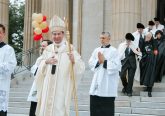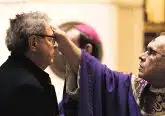Education for the Common Good
Over the past few years, there have been contentious public arguments over who has authority to educate children and what should be included (or excluded) from the curriculum. Many politicians and pundits declared that parents should have little or no input into curriculum decisions and proposed learning outcomes. For example, a 2021 Washington Post opinion piece headlined, “Parents claim they have the right to shape their kids’ school curriculum. They don’t.” Similarly, a Virginia governor candidate declared that parents should have no say in school curriculum decisions (and the candidate lost). A prominent Harvard University professor opined that home schooling should be banned unless the curriculum passes detailed, intrusive government scrutiny of curriculum and viewpoints.
Concerned parents replied that this is nothing less than authoritarianism, and they nominated school board candidates that oppose such notions. Some states began mandating parameters and prohibitions in their public school systems, especially curriculum related to sexuality and gender. Of course, parents are free to send their children to parochial or private schools, which many do, but there are penalties: parents pay both tuition to their private schools and taxes that finance public schools. And some families cannot afford private or parochial options. Besides, if some politicians and regulators have their way, the state will also reach into these schools to manipulate their curriculum through onerous regulations or withholding federal funds.
As the nation’s children return to school in August, these public arguments are an opportunity to consider an authentic Catholic understanding of education’s role, parents’ authority in providing it, and the goods to which education should properly be ordered.
TRAINING IN THE USE OF KNOWLEDGE
Education is not merely the primary responsibility of parents; properly understood it is the sole responsibility of parents because the very foundation and context for a well-educated person begins long before the first alphabet recitation or deciphering of a sum. Education is not merely the accumulation of memorized rules of grammar, arithmetic and science, nor the rote recitation of dates, places and names. Indeed, without a proper foundation in the human person’s nature and purpose, none of these can be properly assimilated into an “educated” student. Proper training in the use of knowledge is a necessary precondition for a complete education.
This is because the first “school” of the well-educated person is the school of virtue, a training that is solely the family’s responsibility, headed by the parents. As the Vatican’s 1983 Charter of the Rights of the Family put it, the family “is uniquely suited to teach and transmit cultural, ethical, social, spiritual and religious values, essential for the development and well-being of its own members and of society.” Such responsibility is rooted in, and informed by, the parents’ love of their children. In the words of Pope St. John Paul II’s Apostolic Exhortation Familiaris Consortio, “parents’ love is … the animating principle … guiding all concrete educational activity, enriching it with the values of kindness, constancy, goodness, service, disinterestedness and self-sacrifice that are the most precious fruit of love.”
The reality that some parents neglect or abdicate this duty does not refute the principle. Unfortunately, parents who were not well educated visit their deficiencies on their offspring, but this heightens the family’s importance as the school of virtue. Knowledge can be, and often is, a dangerous commodity. In the hands of those not well trained to use it, it is as likely to produce calamity as felicity. Thus we are compelled to reinvigorate our investment in proper catechesis, beginning in the home so that the family as the first school of virtue may be reaffirmed and strengthened.
To say that parents have sole responsibility for their children’s education is not to say that aspects cannot be delegated to others; we can reasonably entrust children to those trained in specializations. But this delegation must ensure the context of the human person’s nature and purpose as a being ordered toward God, and thus develop the virtues necessary to order all knowledge toward love of God and others.
This brings us back to disputes about parents’ input for public schools’ curriculum. Unfortunately in many cases, the parents who complain do not want to change the fundamental approach to education. If education is built upon a foundation of individual autonomous rights, for which personal liberty is the highest value, complaints about the edifice are just tinkering with the trim. If the parents themselves do not have a proper vision of the human person, the educational reforms they desire are just variations on the theme they criticize. This, unfortunately, also applies to parochial and other Catholic schools. Before we parents presume to have a voice in education, we must be clear about what a proper education entails.
 Dr. Kenneth Craycraft is an attorney and the James J. Gardner Family Chair of Moral Theology at Mount St. Mary’s Seminary & School of Theology.
Dr. Kenneth Craycraft is an attorney and the James J. Gardner Family Chair of Moral Theology at Mount St. Mary’s Seminary & School of Theology.
This article appeared in the August 2022 edition of The Catholic Telegraph Magazine. For your complimentary subscription, click here.













